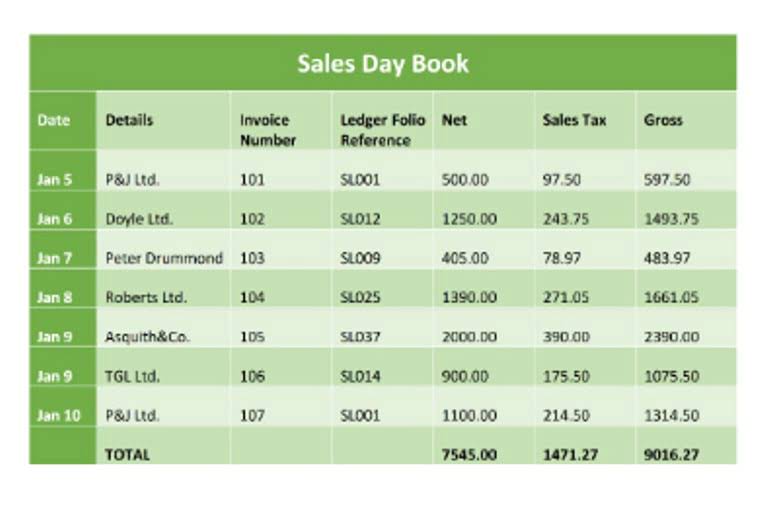
As businesses evolve, the role of a Full Charge Bookkeeper remains indispensable, embodying the meticulous expertise needed to ensure financial integrity in an ever-changing business landscape. Suppose there is a growing small business named “GreenTech Landscaping.” They provide landscaping and garden maintenance services. When GreenTech was a very small company, the owner, Laura, handled all the bookkeeping duties.
Even though we’ve gone through the main full charge bookkeeping responsibilities, let’s delve deeper into how an FC bookkeeper’s career differs from that of an accountant. As you can see, a full charge bookkeeper can be considered a big step up in accounting responsibility. Adding a full-charge staff member means you may need to examine your internal bookkeeping needs and hiring goals. Bringing full-charge bookkeepers on board isn’t as simple as hiring them. Their skills need to be integrated effectively into your existing bookkeeping processes. Due to Changing Nature of Tax Law and Legal field, we do not make any warranties as to accuracy or completeness of this information.
How Does a Full Charge Bookkeeper Differ From An Accountant?
An excellent place to start would be getting educated about what exactly does fall under accounting and taking steps to become certified. The bottom line is that if you want to become a successful full charge bookkeeper, you need to be willing to put in the time. Time and effort applied to any skillset will begin to flourish into a self-sustainable ability.
- They can also provide valuable insights into your financial health, helping you make informed decisions about investments, expansion, and other important business decisions.
- You’ll also want to consider their communication skills, as you’ll be working closely with them to manage your finances.
- Full charge bookkeepers often manage the entire cycle of accounting functions.
- Later in the day, the bookkeeper may produce a report like a balance sheet or create an income statement for the business.
- A regular bookkeeper might be sufficient for small businesses with relatively straightforward financial transactions.
- They manage all aspects of the business’s financial affairs, from processing payroll to producing financial statements and budget forecasts.
In a full charge bookkeeper role, you will be responsible for reconciling all of your accounts and ensuring tallies. This includes cash flow, fixed assets, and inventory levels/values, depending on what is covered by these areas in your job description. When selecting a professional bookkeeping service, consider their experience, reputation, and the range of services they offer.
Pros and Cons of Being a Full Charge Bookkeeper
According to the Navitance Blog, 82 percent of small businesses fail because of cash flow problems. Bookkeepers handle accounts receivable and accounts payable as part of their daily responsibilities. They ensure that the company has an adequate revenue and emergency cash fund. According to the same article, 40 percent of small businesses incur federal tax penalties because of payroll errors.
Mary Durel Obituary (1942-2023) – Harvey, LA – The Times-Picayune – Obituaries
Mary Durel Obituary (1942- – Harvey, LA – The Times-Picayune.
Posted: Wed, 30 Aug 2023 07:00:00 GMT [source]
If you’re looking for a complete charge bookkeeping job, there are a few things you can do to increase your chances of success. This is a great way to meet potential employers and learn more about the job market. We take pride in its high-quality service, ensuring clients can focus on other important aspects of business. This dedication to quality and customer service sets Books and Balances apart in bookkeeping.
Full-Charge Bookkeeper: Definition, Services, Importance
This includes recording transactions, reconciling accounts, and preparing financial statements. As you can see, this role is more comprehensive than an accountant’s role. This style of bookkeeping is most often found in small to midsize companies. Full charge bookkeeping handles all of the accounting needs of a company.
Unlike standard bookkeeping which is limited to maintaining the books and basic data entry. Going full-charge means all bookkeeping, AR/AP, data systems, tax, and financial statements are prepared by one person. A full charge bookkeeper handles typical bookkeeping responsibilities (e.g., data entry), plus additional accounting duties.
Some bookkeepers may even find work with multiple firms and in multiple industries at the same time. Businesses with fewer than 10 employees may only need part-time services from a bookkeeper. This means the bookkeeper might have to work for multiple organizations. Working at a small company, this position may be in charge of every aspect of the company’s finances.

Leave a Reply